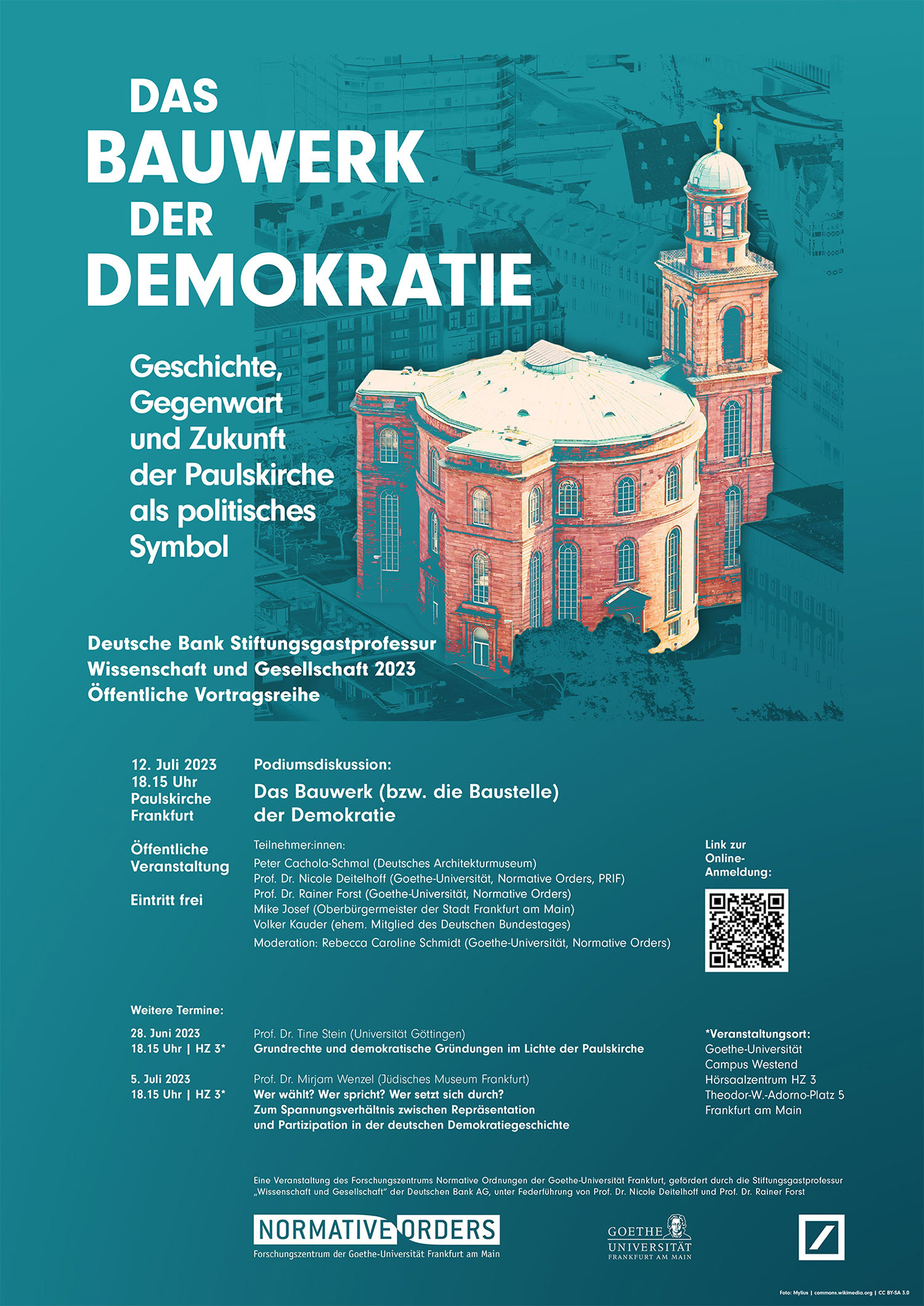“The edifice of democracy” – lecture series begins on May 3, 2023
In 1848, the first nationally elected parliament convened in St. Paul’s Church with the aim of founding a democratic nation. After many compromises, a proposed constitution was drawn up in 1849 – but it failed due to the political balance of power at the time. The Paulskirche is therefore a dialectical political site: it bears witness to the attempts at democratic beginnings and foundations as well as the failure of the same, without the hope that it might one day succeed being extinguished.
In the course of the upcoming 175th anniversary of the National Assembly in May 2023, there will be a broad social debate on the future of St. Paul’s Church. The aim is to renovate St. Paul’s Church in the coming years and, in conjunction with the construction of a ‘House of Democracy’, to turn it into a democratic place of remembrance and discourse.
The lecture series “The building of democracy. The history, present and future of St. Paul’s Church as a political symbol”, which begins on 3 May at 6:15 pm on the Westend Campus, lecture hall HZ 3, with the lecture “A new world full of wonders”: Democratic ways of life in times of revolution, by Prof. Dr. Till van Rahden (Montréal).


